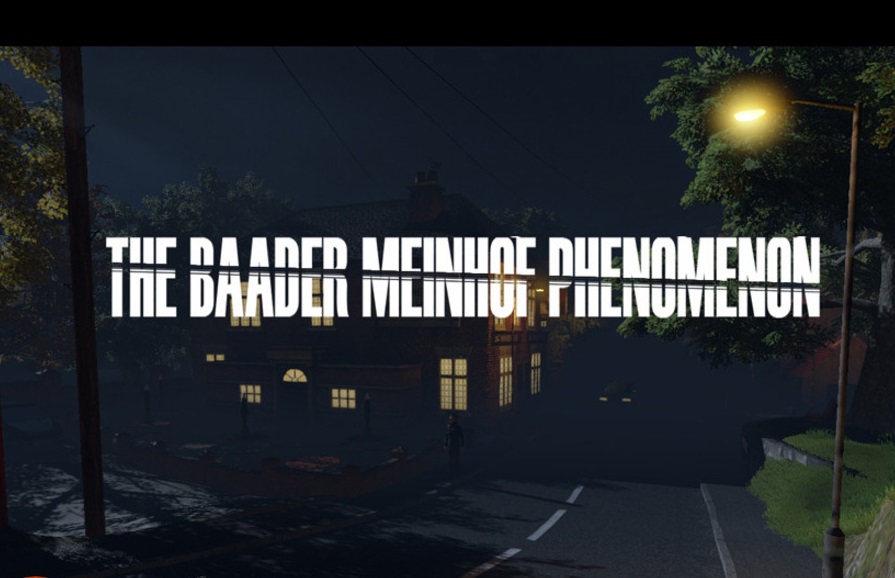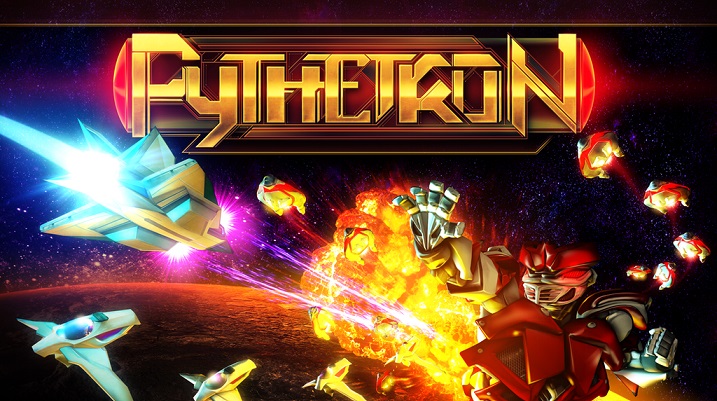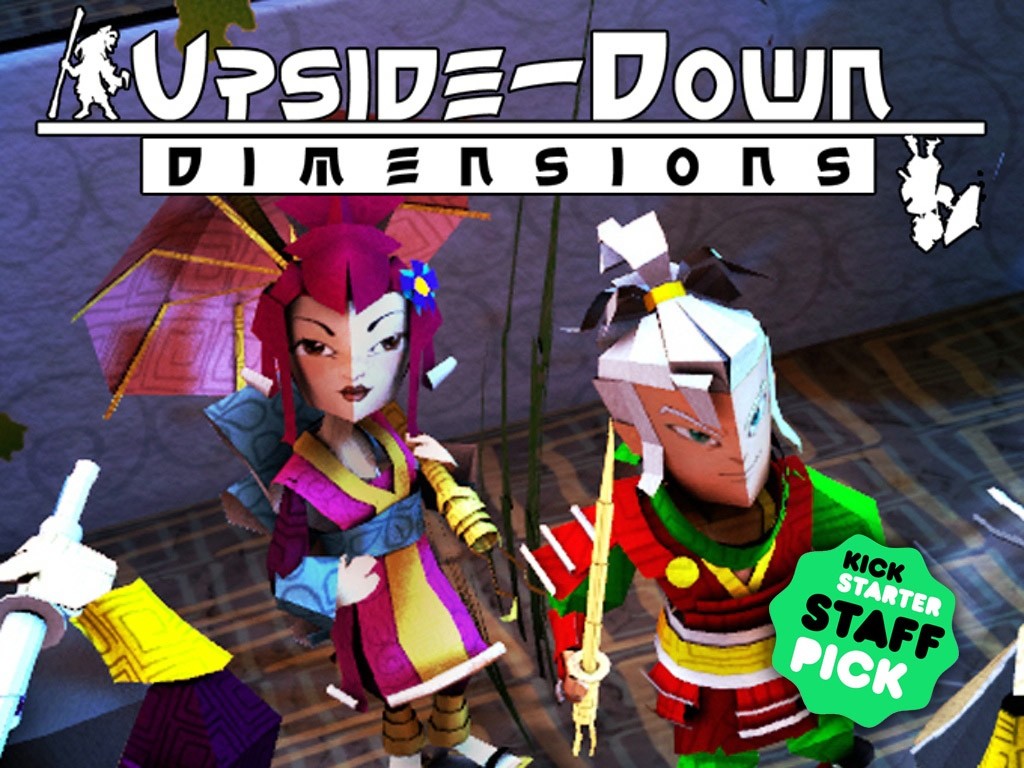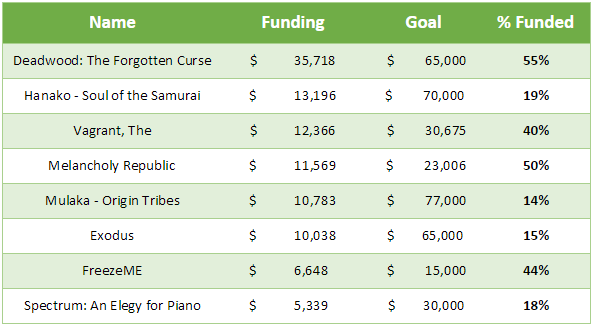Curious about successful and failed Kickstarter campaigns and their data from previous months? Check this tag to see all our posts for 2015 so far.
Note: All non-US $ amounts have been converted to dollars based on exchange rates as of this writing.
The Baader Meinhof Phenomenon (Previous Coverage)
Raised: $3,489 of $38,380 goal
The Baader Meinhof Phenomenon sounded like a great, mature adventure game which just so happened to have a tongue-twisting title. Seriously, all I had to do was read the main pitch to get drawn in: “A psychological thriller aiming to raise awareness of mental health and the long term effects of heavy drug use on the human brain.” It’s hard to say exactly why the Kickstarter failed to take off with such a solid concept. My best guess is that Bearded Pixel weren’t quite able to get the word out an as effective a way as needed to draw in that initial wave of support. Without that in place, it’s much harder to get anyone else to back a campaign. In any case, they’re still working on the game and a Kickstarter relaunch is likely in the cards.
Hanako – Soul of the Samurai (Previous Coverage)
Raised: $13,196 of $70,000
Although most campaign failures don’t tend to surprise me, I was a tad confused by the fact that Hanako – Soul of the Samurai didn’t reach its funding goal. I mean, here is a game concept which isn’t overplayed. Heck, you rarely really get to play as a samurai in much of anything. It seemed to be on the cusp of a new fad, switching out people’s affection for online medieval action games for something more Asian-inspired. Unfortunately, this one didn’t make it, although there was certainly a valiant effort which drew in over 200 backers during the crowdfunding process. Perhaps this game is yet another victim of lack of strategic marketing push. The developers have stated they’re considering another Kickstarter campaign once they get Hanako in a more presentable state, and get the word out more.
Mulaka – Origin Tribes (Previous Coverage)
Raised: $10,783 of $77,000 goal
I’m a huge fan of video games which attempt to explore cultures outside of what the media routinely focuses on as “the norm.” Mulaka – Origin Tribes, to me, felt like the extension of a growing trend in gaming right now to tell stories from the perspective of indigenous people. Going between the “real” world and that of the spirits to solve puzzles sounded like a great concept, and one that utilizes real folklore to make an enjoyable game. It appears that developer Lienzo isn’t able to work on the game without Kickstarter funds, but they haven’t given up! They let everyone know via an update about their focus on potentially obtaining funding via a different avenue. Who knows, perhaps with a slightly restructured campaign and social media push we’ll see Mulaka return as a fantastic success.
Pythetron (Previous Coverage)
Raised: $1,585 of $5,000 goal
Usually, my default suggestion to people considering the prospect of video game crowdfunding is to keep their goal amount under $15,000. Unless you’ve got something truly remarkable, there’s little chance of getting over the $15k hump – heck, even getting close is quite the challenge. Pythetron kept its goal small but unfortunately this shoot ‘em up just didn’t capture peoples hearts. Or rather, if what I suspect is the case, it simply failed to see its name truly get out in the gaming sphere. Genre fans were not informed in great enough numbers, as I know they’re always excited for something new to check out. Developer TJ Townsend was completely aware of this, as he mentioned it in multiple backer updates. Here’s hoping we see Pythetron come back later this year.
Upside-Down Dimensions (Previous Coverage)
Raised: $5,148 of $75,000 goal
Here’s a campaign which perfectly illustrated the challenges of getting a crowdfunding campaign off the ground. Upside-Down Dimensions is a puzzle action game with a super neat mechanic of two separate worlds which link together via its puzzles. However, not only did few people get to hear about the game online, but the actual discussion of gameplay was somewhat muddled. When people did grasp the concept, they loved it, as is evidenced by the relatively quick turnaround on Steam Greenlight. Luckily, it appears Hydra Interactive Entertainment recognize the issues which kept them down. In their last update the developer let everyone know they’ll be bringing Upside-Down Dimensions back to Kickstarter “in a few weeks” – after they’ve gotten the word out to a larger audience.
Now that we’ve got the eulogies out of the way, let’s dig into the actual data compiled of all failed campaigns this month. Previously we ran these posts separately, but from here on out intend to share them as one mega informational post for failed campaigns and one for successful ones.
There were a total of 100 failed video game Kickstarters in the month of April. Although the number may seem staggering, it’s actually a few less than March’s high of 105! This is compared to the 17 successful campaigns which ended during April. For reference, 35 succeeded in March, so that number declined a fair chunk while unsuccessful campaigns stuck around the same percentage. It’s a bit of a disturbing thing to note, but here’s hoping that it is more of an aberration than anything else. Crowdfunding analysts have long since considered these early months of the year to be the biggest (in both good and bad ways) of all, which may explain the continued, impressive saturation of Kickstarter. There were certainly a fair share of disappointments, but again, much of the selection was filled with low information campaigns. 36 games fell under that umbrella, which is only slightly more than March (33). It’s becoming increasingly apparent that there will always be a chunk of folks who do this, no matter what.
Eight campaigns were canceled this month by their creators. That’s just one more than last month, so not a huge surprise overall. There were a few campaigns this month which reached their goal amount (admittedly, not very high ones) only to see funding revoked and the campaign canceled. Boch Man was one of these. It raised $80 right out of the gate and no more. Near the end, the funding was pulled and the campaign unceremoniously canceled. Heck, the entire page was removed. My best guess is that this creator had a friend or dummy account to fund themselves with. Upon realizing that no one else was actually going to provide funds they decided making their game wasn’t worth it. This was not the only campaign of April to pull this trick.
What kind of money were these folks asking for? In total, everyone’s goals amounted to $8,404,448. Seriously! Eight million bucks. Even though the amount of failed campaigns is almost the same as March, this number is hugely inflated in comparison to March’s asking rate of five million. Of course, that was deemed as impressive, more than doubling February’s two million asking price! What’s going on here? As it turns out, one campaign ate up a huge portion of the imaginary budget: Realistic Zombie game and its entirely unrealistic five million goal. Might it be smart for Kickstarter to institute caps on projects which do not conform to at least the barest minimum of project page quality? Maybe they should have someone on staff actually LOOK at every single campaign asking for over a million? Perhaps it doesn’t matter at all, as these projects never have the slightest chance of getting anywhere near that amount.
So, of that goal value, how much was actually raised? $175,200. This is a decline from March where the number was $310k. With a number like that it’s worth checking the average goal amounts to see if they’re reaching too high or just right. Without removing the most obvious outliers the average funding is $84,044 but that’s 100% incorrect. Dismissing Realistic Zombie game alone drops it to $34,388. And what of average funding? It sits at $1,752. No doubt this is a bit of a shock to those who still believe Kickstarter is the land of instant riches. For some, that is still attainable, but in general most scrape by with a few hundred – if they succeed at all. Unfortunately, this collection of 100 campaigns did not.
The average goal to funding ratio is approximately 5%. Sometimes, this can still be a large amount. In the case of Deadwood: The Forgotten Curse, they raised $35,718. As great as that sounds, it was under their funding goal (they’ve since bounced back with a newer, successful Kickstarter)! Thirteen unlucky campaigns received absolutely no pledges at all. At maximum, 4450 folks pledged to campaigns. The true number is likely smaller as many crowdfunding fans pledge to multiple projects each month. In any case, this leaves the average backer count per project at 45. That’s not terrible for small-scale campaigns, but (usually) hardly enough to facilitate double digit funding. Despite the similar amount of failed projects, the total backer count is over a thousand less than March. Perhaps folks are getting more Kickstarter savvy? Or maybe there just wasn’t as much to be excited about this time around.
13 project creators with a game in this month’s list have used Kickstarter before. And yes, basically any previous attempts were also unsuccessful. My question is simply “why?” I can readily understand folks who jump onto the crowdfunding bandwagon after they hear about it with a monolithically terrible campaign. But to make that mistake more than once? At that point it feels like they’re trying to scam someone out of cash… but not doing a particularly effective job out of it. On the other hand, they could simply fundamentally fail to understand the process at all. It’s tough to say. Here’s another tidbit of information that I’m still not sure what to make of yet. 28 failed projects were asking for non-U.S. $ currency.
In all, April did not turn out as I expected. In many ways it was slightly tamer than last month, while in others it blew March out of the water. My main hope is that months like these are the exception to the “rules” of crowdfunding. It is definitely tiring to see poorly thought out campaigns at any time on Kickstarter, but more disheartening to see them eat up the service. We’ve got a few superb campaigns already cropping up for May so the only thing we can do is hope that things get better from here!
Finally, if you’re a developer who is considering Kickstarter and found this article while researching, don’t let it rattle you too much. The reality this information presents is certainly harsh, but failed campaigns usually die because they’re not ready for primetime. As long as you’ve got a solid product, the ability to present it effectively, and price competitively then you’re already leagues above the majority of these failed projects. Effort does not always equal success, but hey – you can always try again.
Check out our forums if you’d like to see every single failed campaign in April (or heck, all of 2015!). Were there any that you wanted to see get funded? That’s it for the failed Kickstarter videogame campaigns of April 2015. Be sure to check out our other month-end Kickstarter data recaps.












Sometimes it could just be down to the projects that get launched and how they’re presented.
I mean look at Elsinore, it reached it’s funding goal in a day and the people developing it are unknown. By all accounts something like that shouldn’t have happened.
Granted they do have a very tantalizing idea….but then again it’s not like other failed projects didn’t have interesting ideas too.
Definitely, so many campaigns offer great ideas and have a nice page presentation too. But why are only a few funded while the rest barely get attention at all?
It might have something to do with how well they get the word out about their game pre-Kickstarter. I dunno if Elsinore did it, but often campaigns which succeed in a day (without a big name attached or super tiny goal) do so because a large circle of people were already aware of the game beforehand.
For me the failure of “Over The Hills And Far Away” was the
most disappointing kickstarter failure L
I am really sad about that one too! Because it ended on May 1 (at least in my region), it doesn’t qualify for this post… but it may crop up on May’s Unsuccessful one.
My hope is that they take a few weeks to get the word out a bit more, then return Over The Hills And Far Away to Kickstarter – and succeed.
Thank you for this analysis, really helpful to the gaming community and a great constant drumbeat every month, please keep it going!
You’re welcome! The April successes post should be up this coming week :).